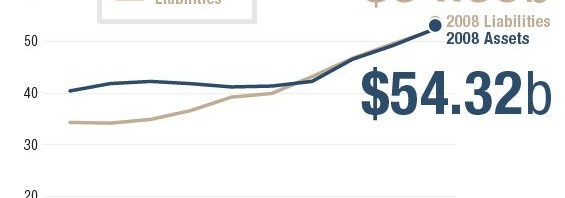-
Boring post about Joint Education Financing Task Force
For those who are interested the state is maintaining a website with information about the meetings the task force is holding. You can sign up at this website for notifications of meetings, perhaps the most interesting part of what is, for now, pretty empty and forlorn. http://www.leg.wa.gov/jointcommittees/EFTF/Pages/default.aspx
-
Budget Reference Material
Every time we start up a new group of legislators looking at how to fund a particular project (in this case the K12 Finance Joint Task Force) there are questions about the budget from members not familiar with it. Here are a set of reference links that should be useful for anyone seeking to understand…
-
Tax Incidence in Washington
(9/25/2014 Fixed link to DC study and updated it to the 2012 version.) There were a number of questions asked in today’s K-12 Finance Task Force meeting about how taxpayers in different income strata experience Washington’s tax system. I’m providing some links to interesting data while we wait for more up-to-date information from the Office…
-
School Funding Task Force Work Plan
At the school funding task force meeting this morning we discussed and adopted the a work plan for the exercise. The document describing this work plan is available here: Initial Plan for K-12 funding policy development . Below is the intro text from this document: In January the Washington State Supreme Court ruled (in McCleary) that…
-
Workers Comp Fraud?
The New York Times ran an article a few weeks ago that a constituent sent me for comment. He wanted to know if the same fraud occurred in Washington. http://www.nytimes.com/2012/07/12/business/some-physicians-making-millions-selling-drugs.html?smid=pl-share In some states doctors providing care under workers compensation were running schemes that resulted in their making crazy money selling drugs directly to patients. You…
-
Frustrating but Powerful
This week I attended a meeting hosted by the Mockingbird Society where foster youth and young alumni of “the system” present proposals they’ve worked on in small groups for a year on how to improve their experiences. This isn’t the first time I’ve attended this event, and it won’t be the last. These young people…
-
Fiscal Cliff and the Washington Budget
Richard Davis of the Washington Research Council posted today about the risks facing the Washington State budget. I don’t always agree with Dick, but he usually has something to say worth listening to. I do agree with him this time, that the largest risk we currently face is that Congress will fail to come to…
-
Long-term pension costs in Washington

The New York Times had an article this week about pension costs faced by states and large cities across America. Their argument is that the rate of return assumed by the plans is too high because returns for most funds over the last decade have been lower than the estimate. They say that 8% is…
-
New (Preliminary) Economic Forecast for Washington
The Economic and Revenue Forecast Council has updated its forecast, as we do every quarter. This is the preliminary forecast. The final will be done in a couple of weeks when we get updated numbers from Global Insight, our vendor for national data. We modify that with specific data from Washington, and change a couple…
-
End of Session Budget Update
Thank you for allowing me to represent you in the Washington State Legislature. It’s an honor and a privilege. This year was pretty “special.” There’s nothing like a little drama to spice up a legislator’s life. This session had it all – defections on budget votes, protesters requiring hearings to be shut down, people being…
